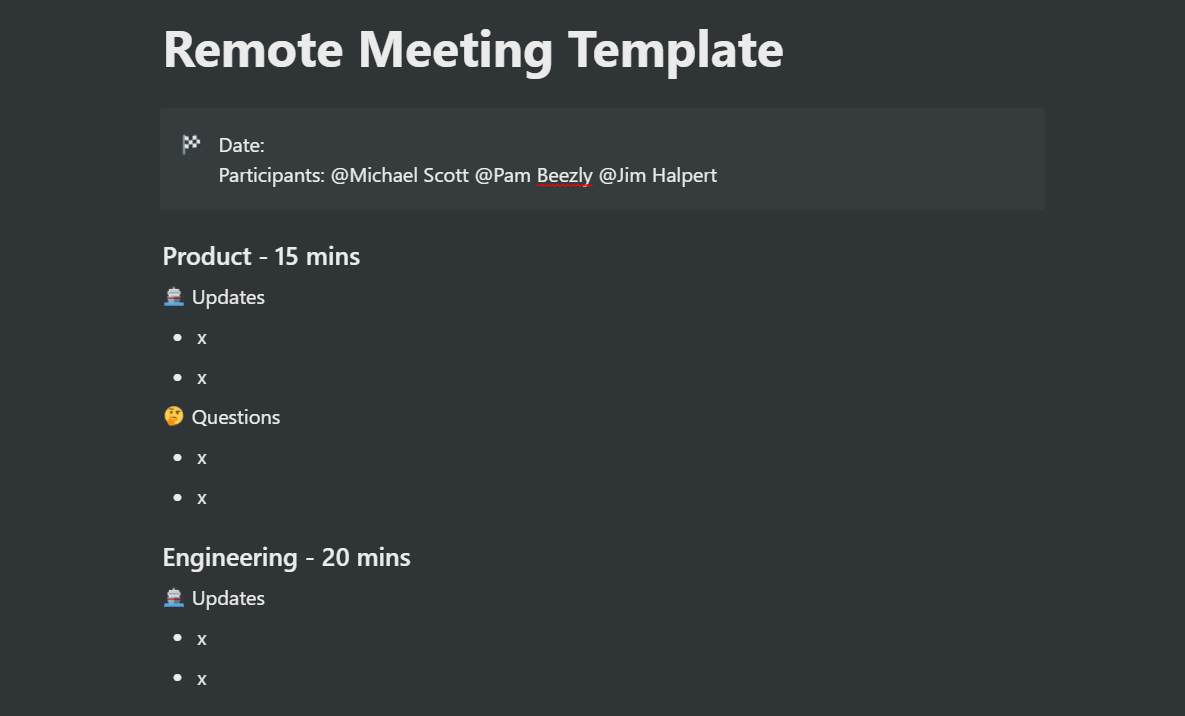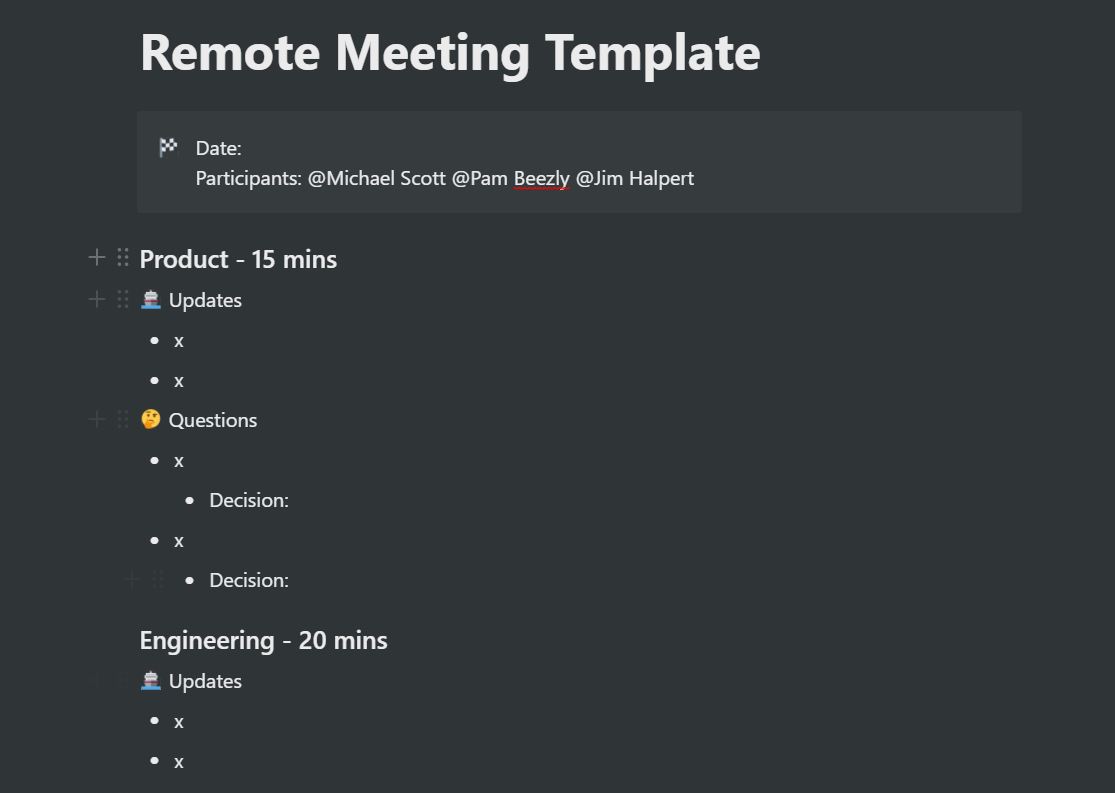Making the Most Out of Meetings: Optimization Tips
Actionable tips to make the most of your team’s collective time
Hey there! Today’s edition offers tactical advice on how to do remote meetings right. I’ve got some interesting posts coming up on NFTs, No-code x Crypto, and more. So stay tuned for that!
Meetings are costly. And even more so when you factor in the time of all participants (here’s a handy calculator) Yet often, in places I have worked, I’ve seen many meetings that are not organized in a way to produce good outcomes. Many of them are disjointed and unpredictable. Since no one knows what will be discussed, everything is a surprise.
As a product person, the team’s output is your output. And meetings are a high leverage activity to get right. It's your responsibility to move the team in the right direction.
Following good meeting hygiene can save you and your team time. Here’s how we evolved remote meetings at my previous workplace.
Do we really need to have the meeting?
Not everything needs a meeting. It’s important to identify what meetings are best used for:
Connect regularly to establish face time
Ask questions
Make a decision
Brainstorm creatively, leading to action items
Meetings aren't best suited for detailed status updates. You can share those on Slack (or another chat platform) before the meeting and quickly run through and answer questions.
If you're ever in doubt whether it should be a meeting, answer the questions on shoulditbeameeting.com.
Set and share the agenda in advance
Once you’ve decided that you do need a meeting, start with an agenda. The agenda serves as the focal point of the meeting, without which the meeting is bound to be disjointed.
Key tips:
Get all major stakeholders to update their talking points beforehand
Bucket the points into two parts: status updates (that should be viewed offline) and discussion points
Share at least a day in advance so everyone has time to add their points and prepare questions
State key questions to be answered
Link additional docs in the agenda so people can read them before the meeting if they need to
Keep space for additional open items during the meeting—the agenda doesn’t need to be rigid
Allocate time to each section to avoid going overtime on one section at the expense of others (this is something that I haven’t done before, but just learning to)
Screenshare the agenda doc during the meeting
One difference in the way we ran meetings is that the agenda is a living document that also serves as the meeting notes.
Assign a note-taker, ideally before the meeting or else at the start of one. You can rotate the duty of taking notes in different meetings, though I've found minimal success due to the varying styles and inclination to take notes. It might work best to assign note-taking to owners of the meeting.
For example, if it’s an all-hands then one of the founders should drive and take notes; if it's a product planning meeting, then the product head or manager. If it’s an engineering meeting, then the engineering lead, and so on.
One point you’ll need to be more aware of as an inclusive leader. Don’t always designate women to be notetakers as associating so-called support tasks with women has been an example of historic gender bias.During the discussion, take notes and add points to things that were discussed, decisions made, and action items tagged with people.
The notes doc also doubles as a decision log, so people can go back to see if the decisions worked out. So many times, verbal decisions are made and not tracked, leading to inconsistencies.
The best part of taking notes during the meeting is that you don’t need to separately make points of the meeting and send people. You can share the meeting notes doc link to everyone and everything is self-contained within the meeting.
Final thoughts
What makes meetings costly also makes them more valuable. Meetings are costly, but that's what makes them valuable. Optimizing meetings will give your team a larger return on investment with just a few tweaks and move your team towards your goals.
Thanks to Stacey King Gordon from Foster for providing feedback on early drafts of this piece.
📘 Read of the week: Maus - Art Spiegelman
Not a blog or article this week, but a graphic novel that’s powerful, moving, and definitely worth reading.
That's it for today, thanks for reading!
Share this newsletter with someone who might enjoy it.
Give feedback and vote on the next topic here.
Talk to you soon!
— Kavir
Press the ♥️ button if you liked this edition.
👇🏽







Very useful post, Kavir. I appreciate the information/value density.